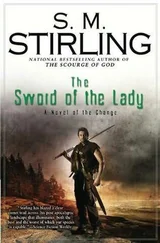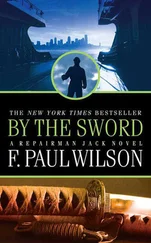Paul Christopher - The Sword of the Templars
Здесь есть возможность читать онлайн «Paul Christopher - The Sword of the Templars» весь текст электронной книги совершенно бесплатно (целиком полную версию без сокращений). В некоторых случаях можно слушать аудио, скачать через торрент в формате fb2 и присутствует краткое содержание. Жанр: Триллер, на английском языке. Описание произведения, (предисловие) а так же отзывы посетителей доступны на портале библиотеки ЛибКат.
- Название:The Sword of the Templars
- Автор:
- Жанр:
- Год:неизвестен
- ISBN:нет данных
- Рейтинг книги:3 / 5. Голосов: 1
-
Избранное:Добавить в избранное
- Отзывы:
-
Ваша оценка:
- 60
- 1
- 2
- 3
- 4
- 5
The Sword of the Templars: краткое содержание, описание и аннотация
Предлагаем к чтению аннотацию, описание, краткое содержание или предисловие (зависит от того, что написал сам автор книги «The Sword of the Templars»). Если вы не нашли необходимую информацию о книге — напишите в комментариях, мы постараемся отыскать её.
The Sword of the Templars — читать онлайн бесплатно полную книгу (весь текст) целиком
Ниже представлен текст книги, разбитый по страницам. Система сохранения места последней прочитанной страницы, позволяет с удобством читать онлайн бесплатно книгу «The Sword of the Templars», без необходимости каждый раз заново искать на чём Вы остановились. Поставьте закладку, и сможете в любой момент перейти на страницу, на которой закончили чтение.
Интервал:
Закладка:
“France,” replied Braintree. “Just south of Dijon.” He nodded to himself, running his finger down a page in the index then stopping. “Here it is,” he said, a note of triumph in his voice. He went back to his desk and picked up one of Peggy’s photographs. He glanced at it, then handed the picture to Holliday. It was a close-up of the chops on the tang of the sword and the inscription.
“De laudibus novae militiae, addressed to Hugues de Payens, first Grand Master of the Templars and Prior of Jerusalem.”
“I don’t understand,” said Holliday.
“The initials D.L.N.M. De Laudibus Novae Militiae. It was a famous letter written to Payens, the founder of the Templar Order. It’s the code key.” He paused. “And there’s one more thing, the clincher.”
“What?” Holliday asked, feeling a surge of excitement as faint clues from the past began drifting up to the present day like whispering ghosts as the mystery was unraveled.
“Bees,” said Braintree, pointing to the stamped design in the photograph. “In France Alberic of Cоteaux is the patron saint of bees and beekeepers.”
Peggy picked the book up off the professor’s desk.
“I know this name,” she said, thinking hard. Finally she got it. “The photograph in Grandpa Henry’s office. The one taken in Cairo or Alexandria in 1941. One of the men in the photograph was Derek Carr-Harris.”
“Who went to Oxford,” said Holliday, staring at the cover of the book in her hand.
“Who wrote down the directions to his country house in Leominster on the Old Members invitation,” finished Peggy, grinning.
Braintree looked confused.
“Did I miss something?”
9
After spending less than twenty-four hours in Toronto, Peggy Blackstock and John Holliday took a late-night British Airways flight from Pearson International to Heathrow, arriving at nine o’clock the following morning. Calling ahead to Derek Carr-Harris’s office in Oxford informed them that the professor was on summer holidays at his country house and could not be contacted there since his office politely but categorically declined to give out either his address or his private telephone number. The phone number in Uncle Henry’s address book rang unanswered when they called, so presumably it was his home number in Oxford.
Arriving at Heathrow, they took the Underground to Paddington station and paused in the station restaurant for a horrible breakfast that advertised itself as sausages and eggs, but wasn’t, and an equally terrible cup of coffee. Breakfast eaten, they climbed aboard the Virgin Rail train to Wales and three hours later found themselves in the country town of Leominster.
“Lemster,” as Peggy pronounced it, had achieved some notoriety in the Middle Ages as a thriving market town where you could buy the best lamb’s wool in the world-“Leominster Oro” as it was called. Since then it had become a quaint backwater on the ancient and often disputed border between England and Wales. To Holliday it seemed to have the same faintly over-varnished look of tourist towns in the States that often survived on their questionable history, their tourist appeal, and the quality of their French fries, or in the case of Leominster, its Mousetrap Cheese and its endless variety of antique shops.
“Just a little ‘twee,’ ” as Peggy put it, strolling down the High Street toward something called “The Butter-cross” looking for a place to rent a car. She settled on a squat-looking little Toyota Altis from Avis, and after getting some complicated directions from a pimply young attendant named Billy who kept on referring to Peggy and Holliday as “Yanks” they set off, heading west on the Monkland Road. Switching to the even narrower A44 after a few miles, Peggy gripped the wheel tightly as she piloted the car between the bracketing hedgerows on both sides of the road. Every now and again they’d reach the top of a hill and, for a second or two, they’d catch a glimpse of the pastoral patchwork of fields they were driving through.
“Its like going down a bobsled run,” she muttered, praying that they wouldn’t meet someone driving in the opposite direction; the road was barely wide enough for the compact Altis, let alone a full-sized car, truck, or God help them, some lumbering piece of farm machinery-or even worse, a flock of the wooly sheep the area had once been so famous for.
“Okay,” Peggy said to Holliday, keeping her eyes peeled for jaywalking sheep. “Reality check time. You’re giving up a month of trout fishing in Patagonia, and I turned down a choice assignment in New Zealand, a place I’ve never been, I might add. So once again, why are we doing this?”
“Because that son of a bitch Broadbent had Uncle Henry’s house burnt down,” said Holliday.
“That doesn’t explain why we caught the red-eye to Heathrow and had to eat British Airways cheese rolls,” said Peggy.
“Presumably he burned down the house in an effort to hide the fact that he’d stolen the sword,” answered Holliday. “The sword was that important to him.”
“It’s just a sword, Doc. An artifact from the Middle Ages, like Leominster back there. What does it have to do with us?”
“A thousand years ago somebody in the Knights Templar sent a message to one of the Templar founders in France. It was so important that the message was sent in code, wrapped around the hilt of the sword that Uncle Henry found in Hitler’s country house in the Bavarian Alps. Uncle Henry thought it was important enough to have hidden it away and never mentioned it for more than half a century. In fact he was making sure that no one got hold of the sword until after he was dead-that’s why he put the clue in that copy of The Once and Future King. It was important to the Knights Templar a thousand years ago-it was so important that your grandfather went to great lengths to hide it away, and it was important enough for Broadbent to commit a crime for it. That means the message encoded on the sword is still important. That’s why we’re doing this.”
Following young Billy’s directions they took the second right turn after the A44 intersection and headed down a narrow unnamed road for a hundred yards or so, then turned onto a wooded country lane with a small sign that read L’ESPOIR in faded white letters painted on a rusted milk can perched precariously on a pile of stones.
“The Hope,” translated Holliday, reading the sign. They drove down the lane, the dense scrub of witch elm and lime trees on either side of them almost brushing against the car. An old steel farm gate yawned open on the right. Peggy turned the car into the scruffy front yard of L’Espoir.
There were half a dozen buildings scattered about in a loose cluster around the main farmhouse including a pair of sagging, half-timbered barns, something that might have once been a stone granary, and a more recent Dutch-style open structure with a very old-looking curved, corrugated, and rust-stained iron roof. Instead of hay under the roof there was an eighteen-foot coble dinghy overturned on sawhorses desperately in need of paint. Holliday could read the name on the transom: Dawn Treader. Clumps of grasses grew waist high everywhere in the yard except on a gravel-strewn patch where the oil leaks of cars and farm machinery had stained the soil.
There were two ancient-looking Volkswagen campers beside the Dutch barn, an even older Morris Minor estate wagon up on blocks beside the granary, and a relatively new-looking but extremely muddy Land Rover parked beside the farmhouse. Off to one side there was a weed-choked pond surrounded by a bank of dried-out bulrushes. All of this was enclosed by a shielding fortress ring of hedges, trees, and shrubbery run amok.
“Not much hope here,” said Peggy, pulling up beside the Land Rover. They climbed out of the car and stood looking at the farmhouse in the early-afternoon sunlight. The house was as much a hodgepodge as the rest of the property: a central building of thatched-roof stone with a sagging half-timbered extension that could easily have been sixteenth or seventeenth century and finally a “modern” brick extension that looked like early Victorian, all of it cobbled together with struts, timbers, and unsuccessful patchworks of stucco and plaster. At first glance there didn’t seem to be a window or doorframe still hanging true.
Читать дальшеИнтервал:
Закладка:
Похожие книги на «The Sword of the Templars»
Представляем Вашему вниманию похожие книги на «The Sword of the Templars» списком для выбора. Мы отобрали схожую по названию и смыслу литературу в надежде предоставить читателям больше вариантов отыскать новые, интересные, ещё непрочитанные произведения.
Обсуждение, отзывы о книге «The Sword of the Templars» и просто собственные мнения читателей. Оставьте ваши комментарии, напишите, что Вы думаете о произведении, его смысле или главных героях. Укажите что конкретно понравилось, а что нет, и почему Вы так считаете.











